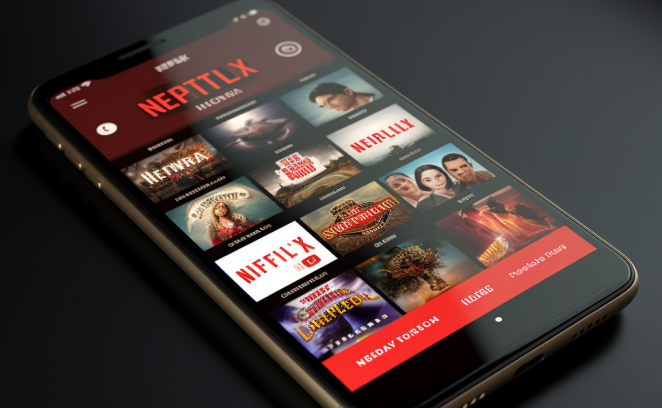In an increasingly complex and volatile business environment, organizations are constantly seeking ways to navigate uncertainty and make informed financial decisions. One powerful tool that has gained prominence in recent years is scenario planning. This strategic approach allows businesses to anticipate potential future outcomes and develop robust financial projections that can withstand a range of possible scenarios.
Understanding Scenario Planning
At its core, scenario planning is a structured method for imagining and preparing for multiple plausible futures. Unlike traditional forecasting, which often relies on historical data and trends, scenario planning embraces uncertainty and encourages organizations to consider a wide range of potential outcomes.
The process typically involves several key steps:
- Identifying key drivers: These are the critical factors that could significantly impact an organization’s future. They might include economic trends, technological advancements, regulatory changes, or shifts in consumer behavior.
- Developing scenarios: Based on these drivers, teams create detailed narratives of possible future states. These scenarios should be distinct, plausible, and challenging to current assumptions.
- Financial modeling: For each scenario, financial projections are developed, considering how different outcomes would affect revenue, costs, and other key financial metrics.
- Strategy formulation: Based on the insights gained from the scenarios and financial models, organizations can develop flexible strategies that are robust across multiple potential futures.
The Rise of Data-Driven Scenario Planning
In recent years, the advent of big data and artificial intelligence has revolutionized the field of scenario planning. Organizations now have access to vast amounts of real-time data and sophisticated analytical tools that can enhance the accuracy and depth of their scenarios.
AI-powered algorithms can process enormous datasets to identify patterns and correlations that might not be apparent to human analysts. This capability allows for the generation of more nuanced and complex scenarios, taking into account a broader range of variables and their potential interactions.
Moreover, machine learning models can continuously update and refine scenarios based on new data, ensuring that financial projections remain relevant in a rapidly changing environment. This dynamic approach to scenario planning enables organizations to be more agile and responsive to emerging trends and risks.
Emerging Trends Shaping Scenario Planning
Several key trends are influencing the practice of scenario planning in financial projections:
- Climate change and sustainability: As environmental concerns become increasingly pressing, organizations are incorporating climate-related scenarios into their financial planning. This might include assessing the impact of carbon pricing, extreme weather events, or shifts towards sustainable technologies.
- Geopolitical volatility: In an interconnected global economy, geopolitical events can have far-reaching financial implications. Scenario planners are now considering a wider range of political outcomes and their potential economic consequences.
- Technological disruption: The rapid pace of technological change is forcing organizations to consider scenarios where their business models may be fundamentally disrupted. This could include the impact of automation, blockchain, or emerging technologies like quantum computing.
- Changing workforce dynamics: Shifts in labor markets, such as the rise of remote work and the gig economy, are being factored into financial scenarios. Organizations are considering how these changes might affect productivity, talent acquisition, and operational costs.
Case Studies: Scenario Planning in Action
Many organizations have successfully leveraged scenario planning to enhance their financial decision-making and resilience. Here are two notable examples:
Shell Oil Company: Shell has been a pioneer in scenario planning since the 1970s. Their approach helped them navigate the oil shocks of that decade and has since become an integral part of their strategic planning. In recent years, Shell’s scenarios have focused heavily on the energy transition, allowing them to adapt their business model and investments in response to changing market conditions and environmental pressures.

Netflix: As a disruptor in the entertainment industry, Netflix has used scenario planning to stay ahead of rapid technological and market changes. Their scenarios have considered various futures for content consumption, helping them make strategic decisions such as investing heavily in original content production and expanding globally.
Overcoming Challenges in Scenario Planning
While scenario planning can be a powerful tool, organizations often face challenges in its implementation:
- Data quality and availability: Effective scenario planning requires reliable and comprehensive data. Organizations may struggle to gather all the necessary information or to ensure its accuracy.
- Cognitive biases: Human decision-makers can be prone to various biases, such as overconfidence or anchoring to past experiences, which can skew scenario development.
- Resource constraints: Developing and analyzing multiple scenarios can be time-consuming and resource-intensive, particularly for smaller organizations.
- Resistance to change: Some stakeholders may be resistant to considering scenarios that challenge their existing assumptions or threaten the status quo.
To overcome these challenges, organizations can:
- Invest in robust data collection and management systems
- Use diverse teams and external experts to challenge assumptions and broaden perspectives
- Leverage technology to automate and streamline parts of the scenario-planning process
- Foster a culture of openness to change and continuous learning
Best Practices for Effective Scenario Planning
To maximize the value of scenario planning in financial projections, consider the following best practices:
- Embrace diversity: Include a wide range of perspectives in your scenario planning team to challenge assumptions and generate more creative scenarios.
- Focus on plausibility, not probability: Don’t get caught up in trying to predict the most likely future. Instead, explore a range of plausible scenarios that stretch your thinking.
- Regularly update and refine scenarios: Treat scenario planning as an ongoing process, not a one-time exercise. Continuously incorporate new information and insights.
- Link scenarios to action: Ensure that your scenarios lead to concrete strategic options and financial implications. Avoid creating scenarios that are interesting but not actionable.
- Communicate effectively: Develop clear and compelling narratives for each scenario to engage stakeholders and facilitate decision-making.
- Balance detail and flexibility: Create scenarios that are detailed enough to be meaningful but flexible enough to adapt to changing circumstances.
Conclusion: Embracing Uncertainty for Financial Success
In an era of unprecedented change and complexity, scenario planning has become an essential tool for financial projections and strategic decision-making. By embracing uncertainty and systematically exploring multiple possible futures, organizations can develop more robust financial plans and strategies.
The integration of advanced technologies and the consideration of emerging global trends are pushing the boundaries of what’s possible in scenario planning. As organizations continue to refine their approaches and overcome implementation challenges, scenario planning will play an increasingly crucial role in building resilience and identifying new opportunities.
By mastering the art and science of scenario planning, finance professionals and business leaders can navigate uncertainty with greater confidence, make more informed decisions, and position their organizations for long-term success.

Pitch deck consultants and other strategic advisors can play a crucial role in helping organizations implement effective scenario planning processes, ensuring that financial projections are both robust and adaptable to an uncertain future.









